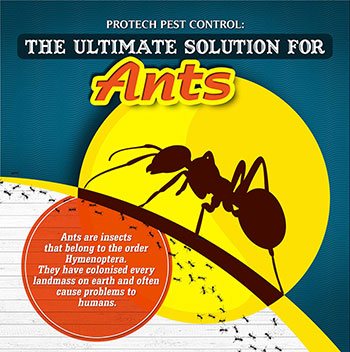Protecting Your Garden From Pests: Techniques For A Pest-Free Outdoor Space
Protecting Your Garden From Pests: Techniques For A Pest-Free Outdoor Space
Blog Article
Writer-Thorpe Sharma
Picture your yard as a sanctuary, an area of serenity and charm. Nevertheless, the visibility of outdoor pests can promptly interrupt this ideal image. What if there were basic yet efficient methods to maintain these unwelcome visitors at bay and safeguard your yard oasis? By following a few functional tips and applying natural approaches, you can develop an unified exterior room where your plants can thrive undisturbed.
Natural Insect Deterrents
To maintain parasites far from your yard naturally, plant aromatic herbs like mint and lavender. These great smelling plants not only add appeal to your garden however also serve as reliable parasite deterrents. Bugs like insects, flies, and even some garden-damaging pests are fended off by the solid fragrances given off by these natural herbs. Just positioning them purposefully around your yard can aid develop a natural obstacle against unwanted insects.
In addition to mint and lavender, take into consideration growing various other natural herbs like rosemary, basil, and lemongrass to additionally improve your yard's pest-proofing capacities. These natural herbs not just function as all-natural repellents but also have the included benefit of working in food preparation or crafting home made remedies.
Strategic Plant Positioning
Think about the design of your garden and the types of plants you need to strategically put them for optimum pest-proofing efficiency.
Beginning by organizing plants with comparable resistance to pests with each other. By doing on front page , you can produce a natural barrier that prevents insects from spreading out throughout your garden.
Additionally, placing pest-repelling plants like marigolds, lavender, or mint near more at risk plants can help safeguard them. Tall plants, such as sunflowers or corn, can function as a shield for shorter plants against bugs like rabbits or ground-dwelling pests.
Bear in mind to leave adequate room between plants to improve air circulation and minimize the threat of diseases that pests could bring.
In addition, consider growing strong-smelling herbs like rosemary or basil near prone plants to puzzle parasites' senses and make it harder for them to find their targets.
Reliable Pest Control Techniques
For combating yard bugs efficiently, implementing a multi-faceted bug control approach is important. Beginning by encouraging natural predators like birds, ladybugs, and praying mantises to help keep parasite populaces in check. Presenting plants that attract these valuable insects can help in bug control. Additionally, practicing good yard hygiene by removing particles and weeds where parasites may conceal can make your yard less congenial to undesirable visitors.
Take into consideration using physical barriers such as row cover fabrics or netting to safeguard vulnerable plants from parasites like caterpillars and birds. Using organic chemicals like neem oil or insecticidal soap can also work versus certain pests while being much less damaging to helpful insects and the setting. It's critical to revolve your crops each season to avoid the accumulation of bug populaces that target particular plants.
Regularly evaluate https://www.chronicleonline.com/news/local/nonprofit-spotlight-missy-s-miracles-wildlife-rescue-keeping-wild-things-wild/article_9958123c-1db8-58b0-b989-7b556ae4afda.html for signs of parasite damages so you can take action quickly. By combining these approaches and staying attentive, you can properly manage garden parasites and take pleasure in a thriving, pest-free yard.
Conclusion
So, there you have it - with the ideal methods, you can keep pesky outside pests far from your yard and help your plants flourish.
Did you understand that growing mint has been revealed to drive away insects and various other pests, lowering the demand for harmful chemicals by as much as 60%?
By including natural deterrents and clever planting strategies, you can produce a stunning and pest-resistant garden sanctuary for you to delight in.
